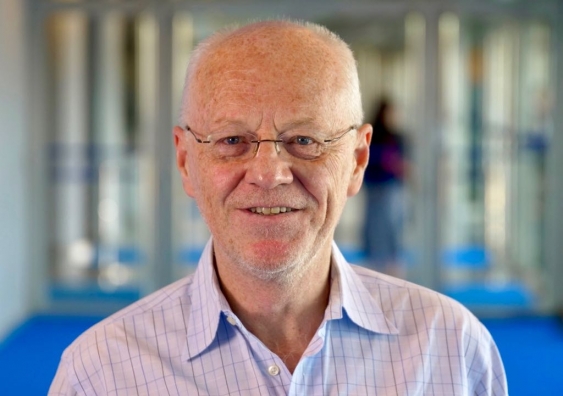
Professor Peter Goadsby
He might be a 2021 recipient of the Brain Prize for identifying the role of calcitonin gene-related peptide (CGRP) in migraine, but Professor Peter Goadsby generously acknowledges that he has learnt a lot from his patients during his career.
Speaking at the Australia and New Zealand Headache Society ASM 2021, Professor Goadsby said patients can speak volumes in tips and clues – if you’re listening.
“Primary headache disorders can be difficult and while the International Classification of Headache Disorders sets out certain symptomology, rules and guidance for the diagnosis there is no doubt that when patients walk into your practice they don’t exactly say what is written in the book. And when they don’t say exactly what is written in the book, that’s when you can start to learn things.”
He told the meeting that there was no downside to listening to patients.
“Some things won’t go anywhere but some will. They teach you about history, they teach you how to use medicines, and they teach you how to think about making advances and changes in your practice. I’m very grateful to them for everything I have learnt.”
Management
Professor Goadsby, from the David Geffen School of Medicine at UCLA, said it was the language his patients used that made him pay real attention to the use of single pulse transcranial magnetic stimulation (sTMS) in migraine, especially with aura.
He said he was initially skeptical about the therapy…that it seemed too simple to be true…yet he heard three patients within the space of a couple of weeks describe having “crystal clear days” with sTMS.
Some of his clinical research – here and here – and laboratory-based research established that patients had found it very useful not just for the acute management of migraine but also to prevent migraine, and that there was a biological rationale for its efficacy.
“It’s a real lesson. People will tell you how things work …and if you listen to them, you will learn how to do things better.”
In the context of short-lasting unilateral neuralgiform headache attacks with conjunctival injection and tearing (SUNCT) and short-lasting unilateral neuralgiform headache attacks with cranial autonomic symptoms (SUNA), he remembers a patient who responded well to lidocaine.
“Once it was suppressed she was well, the first time for more than two years. I learnt from her that whenever you can, give them a decent dose of lidocaine because you can alter the natural history and put them into remission for long periods of time.”
“It doesn’t happen to everyone but it’s fantastic when it does.”
Symptoms
Professor Goadsby said many patients with trigeminal autonomic cephalgias (TACs) talked about a sense of aural fullness.
“I would never have come up with that, I don’t think, if someone hadn’t pointed it out to me.”
He said it has since been dropped from ICHD-3 criteria which he thinks was a mistake “because it is a very prominent symptom – maybe two-thirds of patients will identify cranial autonomic symptoms.”
As well: “One of the more important things a patient pointed out to me is lateralisation of photophobia and phonophobia particularly in cluster headache.”
He admits he challenged the patient who kept describing the symptoms in only one eye.
“It shouldn‘t be surprising given lateralisation of pain…it’s not perfect but if you are stacking up symptoms… adding in lateralisation is very useful towards a differential diagnosis.”
Monitoring
Professor Goadsby said verapamil was one of the best long term preventive treatments for cluster headache.
But he learnt a lesson that if a patient is left on verapamil at a high dose, there can be unexpected PR interval changes.
An audit study he co authored showed ECG abnormalities occurred in 19% of patients.
“A single patient has kept more people out of trouble with monitoring of ECG than perhaps I would ever have done in a lifetime. I’m eternally grateful to the patient who pointed this out to me.”